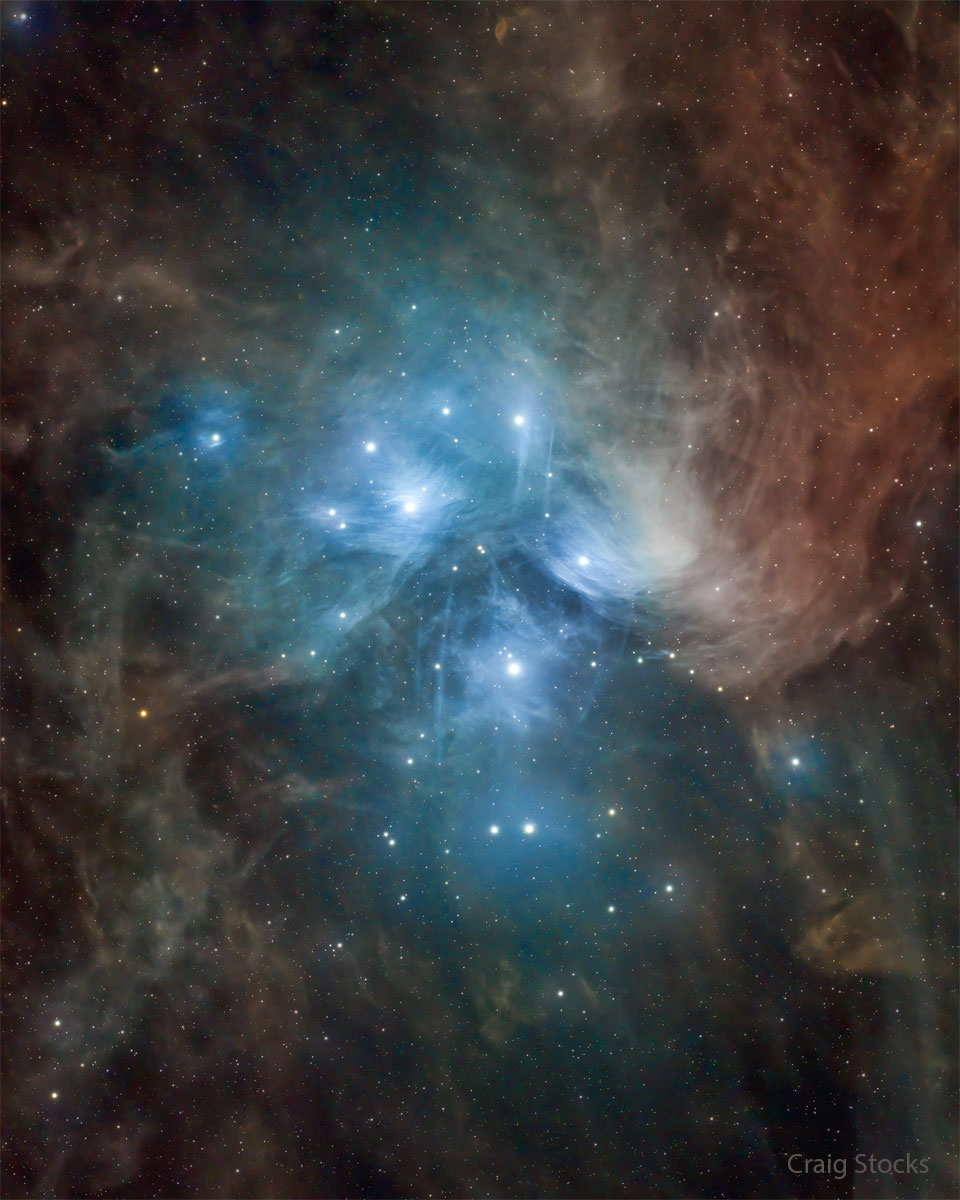2024年1月29日
The Pleiades: Seven Dusty Sisters
Image Credit & Copyright: Craig Stocks
Explanation: The well-known Pleiades star cluster is slowly destroying part of a passing cloud of gas and dust. The Pleiades is the brightest open cluster of stars on Earth’s sky and can be seen from almost any northerly location with the unaided eye. Over the past 100,000 years, a field of gas and dust is moving by chance right through the Pleiades star cluster and is causing a strong reaction between the stars and dust. The passing cloud might be part of the Radcliffe wave, a newly discovered structure of gas and dust connecting several regions of star formation in the nearby part of our Milky Way galaxy. Pressure from the stars’ light significantly repels the dust in the surrounding blue reflection nebula, with smaller dust particles being repelled more strongly. A short-term result is that parts of the dust cloud have become filamentary and stratified. The featured deep image incorporates nearly 9 hours of exposure and was captured from Utah Desert Remote Observatory in Utah, USA, last year.
Tomorrow’s picture: moon frog 1
昴宿星团:有尘埃环绕的七姐妹星团
影像提供与版权: Craig Stocks
说明: 著名的昴宿星团正在缓缓摧毁路过的部分气体与尘埃云。昴宿星团是地球天空中最明亮的疏散星团,几乎在北半球的任何地方,都能用肉眼看到它的身影。在过去的100,000年里,一大片气体与尘埃恰好穿过昴宿星团,造成恒星和尘埃之间的强烈反应。这团路过的云,可能是拉德克利夫波的一部分,而拉德克利夫波则是不久才发现的、连接了我们邻近银河系的数个恒星形成区之气体和尘埃结构。来自恒星光压会显著的排斥周围泛蓝反射星云里的尘埃,其中颗粒较小的尘埃,所受到的排斥力较大。短期的结果是部分的尘埃云纠结成丝状并发生分层。这张整合了将近9小时长曝光数据的主题深空影像,是在去年由美国犹他州的犹他沙漠远距天文台所拍摄的。 (Radcliffe wave 拉德克利夫波)
明日的图片: moon frog 1



